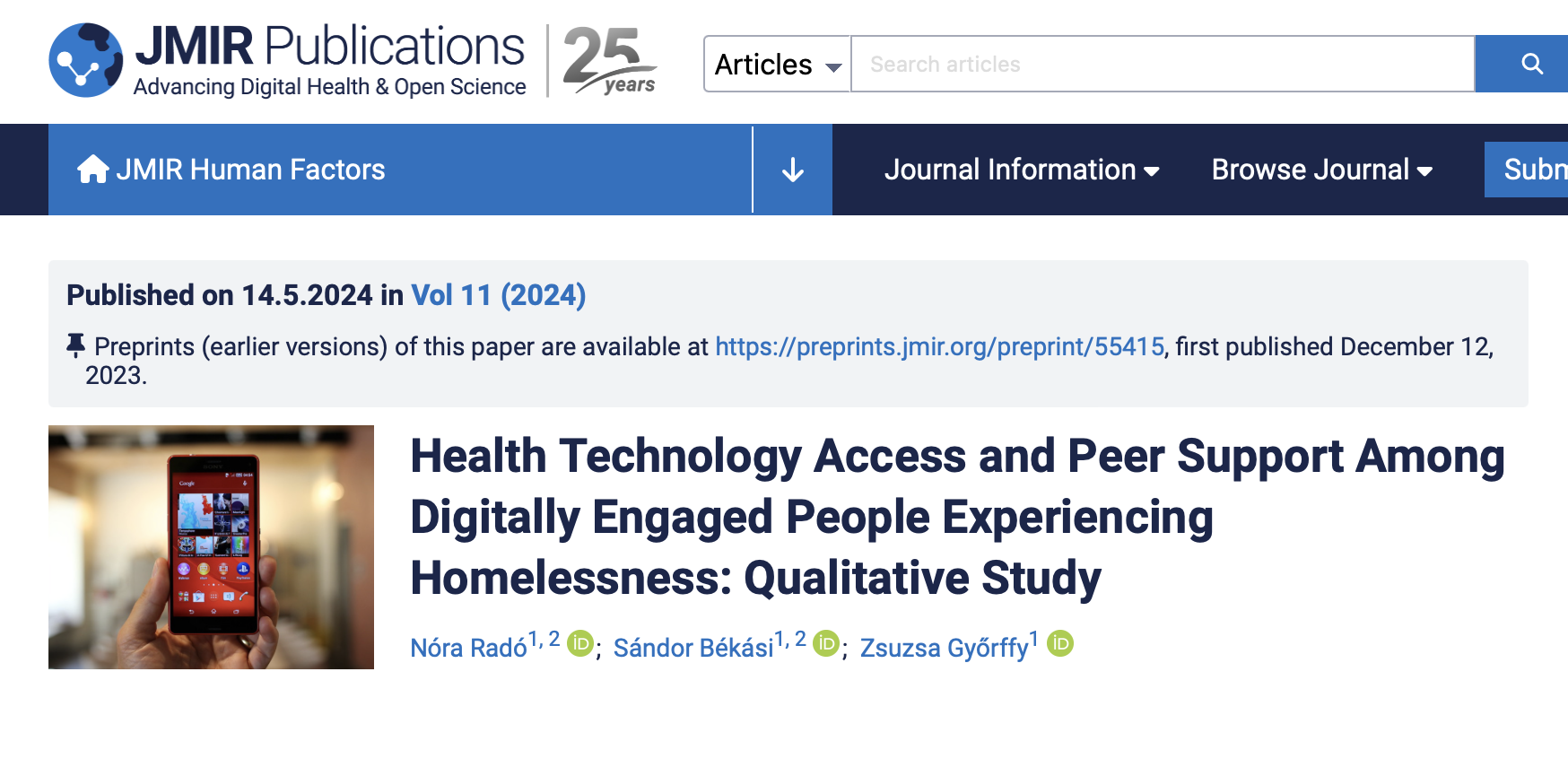Our latest research reveals how digitally engaged people experiencing homelessness are helping their peers
Digitally engaged people experiencing homelessness help solve their peers’ technology problems and try to equip those who come to them with basic digital skills, no matter whether they have issues with their smartphone, websites, social media, or games. This is one of the main findings of a recent study by DocRoom and the Digital Health Research Group at Semmelweis University, published recently in the scientific journal JMIR Human Factors.
What digital devices do they have? Do they use the Internet for health purposes?
Our first article published this year is the next piece in a multi-year research project conducted by the Digital Health Research Group at Semmelweis University and the Hungarian Charity Service of the Order of Malta. In our new study, we have assessed how digital technologies, telemedicine, or smartphone-based platforms can improve access to health and care for vulnerable groups such as people experiencing homelessness.
The research on this particular group of digitally engaged homeless people is a direct follow-up to our earlier quantitative study. Previously, we looked at the digital tool access options and Internet usage habits of people in different shelter types in Budapest, and analyzed what factors hinder or facilitate their use of digital devices. Do they use the Internet and their digital devices for health purposes? Our comprehensive survey received 664 responses, and the results showed that 69.6% of people without stable shelter have a mobile phone, 34.6% have a smartphone option, and 10.8% have already used a healthcare mobile app.
When do people experiencing homelessness become digitally engaged?
Based on the previous survey results, a remarkably numerous group of people experiencing homelessness has clearly emerged who, despite existing infrastructural, access, and knowledge barriers, are actively using digital solutions – even for health-related purposes. We found that 19.5% of respondents could be considered digitally engaged, i.e. they have their own device with Internet access (smartphone, computer, or tablet), use the Internet at least every two weeks (from a free Wi-Fi network, with a pay-as-you-go facility or a subscription) and rated their digital skills as average or above.
Our aim was to gain a better understanding of their characteristics: how they access digital technology, how they use it, and how they have managed to become engaged despite all the above mentioned barriers. We thought a better understanding of their specific characteristics could help us engage a wider range of people in the digital health ecosystem, and give us better insights into how we can design more useful programmes for people experiencing homelessness.
A unique group with special qualities: how they help their peers navigate the digital world
To explore the habits of digitally engaged people experiencing homelessness, we conducted ten in-depth interviews asking them how they put technology at their service. We focused on their use for health-related purposes and asked how they solve problems they encounter.
It turned out that they themselves are perfectly capable of overcoming the difficulties that require technological and digital skills. They are also the ones who help their peers when they get stuck shopping online, signing up for Facebook, their Messenger doesn’t work or they need a virus scan. They are not only receptive to new technological innovations, they are also eager to help their peers pass on their basic knowledge.
As the scientific paper concludes, this trait, namely non-skilled, intuitive peer support, could be the cornerstone of a future peer support programme for digital skills. In a framework like this, digitally engaged people experiencing homelessness as mentors could be the link between their peers and an institutional initiative to deepen digital skills.
